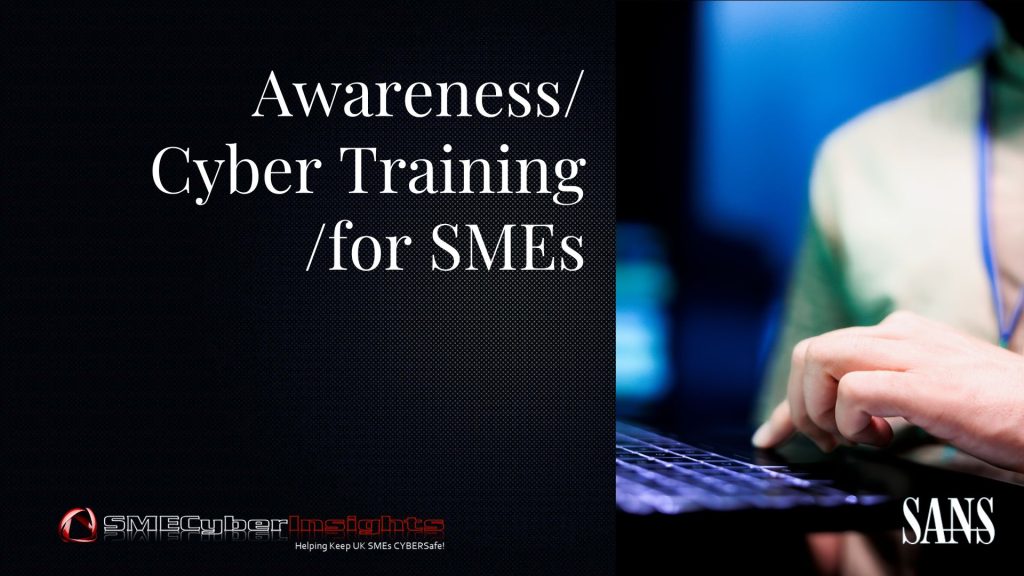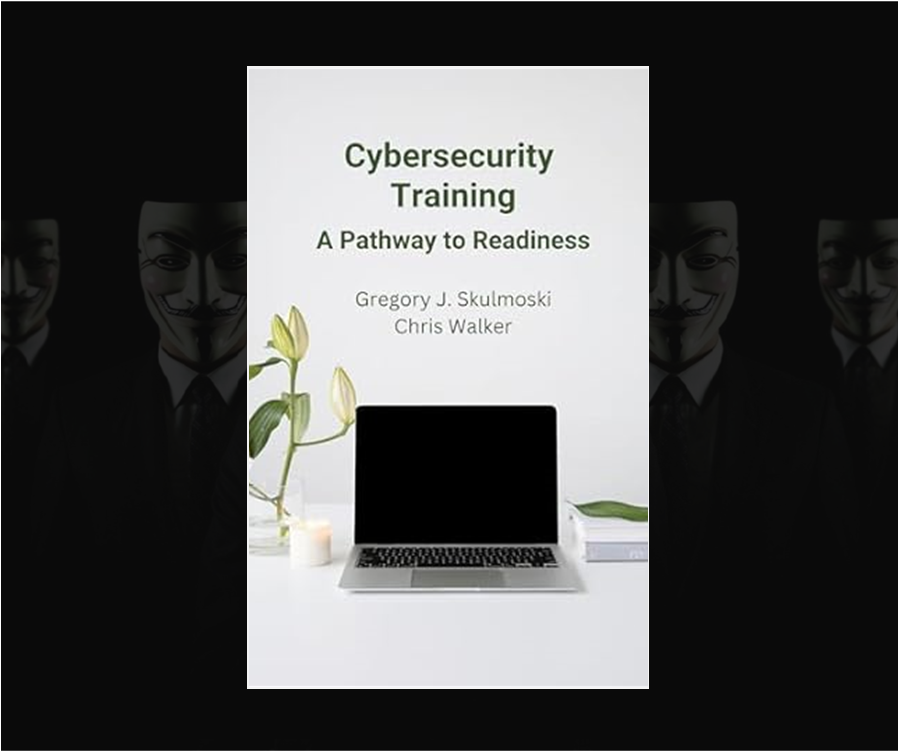CYBER TRAINING: CYBER TRAINING KPI/ Awareness Cyber training for SMEs
September 10, 2024CYBER TRAINING – Enhancing SME Resilience: The Power of Cybersecurity Training– CyberKPI: Empowering Small Businesses. The Essential Guide to Cyber Training and Awareness in the UK and EU. Discover how cyber training can protect small businesses and SMEs in the UK and EU by enhancing employee awareness and reducing vulnerabilities to cyber threats.
Understanding the Significance of Cyber Training for Small Businesses
Cybersecurity awareness training is a critical component for small businesses and SMEs, particularly in the UK and EU, where a staggering 70% of data breaches are attributed to human error. This highlights the need for comprehensive training programmes that equip staff with the necessary skills to detect and mitigate threats. In fact, businesses that invest in cybersecurity training report not only a reduction in the risk of breaches by up to 50% but also an improvement in employee confidence when handling cyber threats. With only 18% of SMEs in the EU having provided cybersecurity training in the past year, there exists a significant gap in awareness that could jeopardise their operation.
The financial implications of neglecting cybersecurity are profound. Small Businesses can suffer average losses of around £3,000 following a cyber incident. This underscores the importance of equipping employees with the knowledge to identify and respond to potential threats, thereby safeguarding the business’s financial health and reputation. Enhanced training can lead to a more secure environment, promoting a culture of vigilance that is essential for thriving in today’s digital landscape.
Importance of Cyber Awareness for SMEs in the UK and EU
Micro and small businesses are increasingly dependent on digital technology, yet many lack the resources necessary to implement robust cybersecurity measures. This reliance makes them attractive targets for cybercriminals, with approximately 43% of cyberattacks aimed at small businesses. Despite this alarming statistic, many SMEs underestimate the risks, often believing they are not targets due to their size.
A lack of awareness can lead to severe consequences, including operational disruptions that may last up to 30 days, significantly impacting customer trust and revenue. The UK Cyber Security Breaches Survey indicates that many SMEs lack direct access to government or law enforcement resources, making them more vulnerable in the face of cyber threats. This reality further emphasises the necessity of developing a strong cyber awareness framework within these organisations.
Common Cyber Threats Faced by Small Businesses
Small Businesses face various cyber threats, with Phishing attacks being particularly prevalent. Research shows that training can lead to a 71.5% reduction in phishing incidents, demonstrating the effectiveness of proactive education. In addition to Phishing, SMEs are often targets of Ransomware, Identity Theft, and data breaches, primarily due to inadequate cybersecurity measures.
The rise of social engineering attacks and the increasing trend of remote work have exacerbated these vulnerabilities. Employees working from home may not adhere to the same security protocols as they would in an office environment, increasing the risk of breaches. Alarmingly, over 60% of small businesses that experience a cyberattack go out of business within six months, underscoring the critical need for awareness and preparedness.

Required Training Programmes for Staff
To effectively combat cyber threats, comprehensive training programmes are essential. These should encompass topics such as phishing awareness, incident response protocols, and data protection measures. Regular, tailored training sessions are crucial to accommodate the busy schedules of employees while ensuring continuous awareness and skill development.
Training should empower staff to recognise and report potential threats, fostering a culture of security within the organisation. Incorporating simulated cyberattack scenarios into training can provide practical experience, equipping employees with the skills needed to respond effectively. Furthermore, offering continuous learning opportunities, such as refresher courses, ensures that staff remain informed of evolving threats and best practices.
Benefits of Investing in Cyber Training
Investing in cyber training offers numerous benefits for small businesses, enhancing both their security posture and customer confidence. A robust cybersecurity framework not only ensures regulatory compliance but also results in cost savings, as the expenses associated with dealing with cyberattacks can far exceed the costs of preventive training.
Businesses that implement structured training programmes often gain a competitive advantage by showcasing their commitment to data protection. Enhanced training can lead to improved employee productivity, as staff spend less time addressing the consequences of cyber incidents. The return on investment for cybersecurity training can exceed 300%, making it a financially sound decision for SMEs.
Legal and Regulatory Requirements for Cybersecurity
Small Businesses must navigate a complex landscape of legal and regulatory requirements regarding cybersecurity, particularly under regulations such as the General Data Protection Regulation (GDPR). This includes ensuring that staff receive proper data protection training to mitigate risks associated with handling personal data.
Under GDPR, businesses are mandated to assess their cyber risks and implement appropriate training, with non-compliance resulting in severe fines—up to £17.5 million or 4% of annual global turnover. Additionally, businesses are required to report data breaches within 72 hours, underscoring the importance of preparedness and training in the event of an incident.
Creating a Cyber-Aware Culture within the Organisation
Establishing a culture of cybersecurity awareness within an organisation begins with leadership commitment. Engaging staff through live demonstrations of vulnerabilities and providing accessible cybersecurity advice can significantly improve awareness and adoption. Encouraging open communication regarding cyber threats and incidents fosters a supportive environment where employees feel comfortable reporting potential issues.
Recognising and rewarding employees who exhibit good cybersecurity practices can reinforce positive behaviours, while integrating cybersecurity awareness into onboarding processes ensures that new hires understand its importance from the outset. This holistic approach to cultivating a cyber-aware culture is vital for the long-term security and resilience of small businesses.
By prioritising cybersecurity training and awareness, small businesses in the UK and EU can enhance their resilience against cyber threats, ensuring their operational continuity and safeguarding customer trust.

What is a VPN & Does my SME Need one? A VPN is a Virtual Private Network a method of securing your communications credentials. When it comes to Small and Medium-sized enterprises (SMEs), the choice of VPNs can significantly impact the security and efficiency of their operations.
The NordVPN service allows you to connect to 5600+ servers in 60+ countries. It secures your Internet data with military-grade encryption, ensures your web activity remains private and helps bypass geographic content restrictions online. Join NordVPN Today and Save up to 73% and Get 3 months Extra Free – Rude Not to …!
CYBER Insights – Helping keep Small Business CYBERSafe!
Launched in 2020 by Cybersecurity Journalist Iain Fraser and his team at IfOnlyCommunications, CYBERInsights was developed to be the go-to platform providing definitive, reliable & actionable Cybersecurity News, Intel & Awareness Training for SMEs throughout Europe (UK & EU) as they as they further embraced new Technologies and Business Practices.












